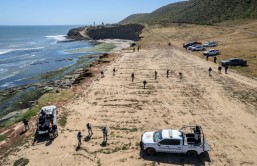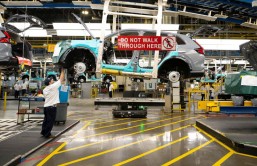
(Photo : Dmitry Demidko on Unsplash)
Since 2019 and following a popular uprising in Lebanon, an economic crisis has taken the country by storm resulting in a US dollar banknote scarcity and brewing tensions between banks and depositors. As more depositors insist on withdrawing their locked-in money; banks are finding themselves unable to meet this demand. Amid this stalemate, many depositors have resorted to armed hold-ups, forcefully asking for a fraction or the entirety of their deposits.
Increasing Tensions between Banks and Depositors
Marwan Kheireddine; businessman, politician and chairman of AM Bank in Lebanon; was hosted on a prominent Lebanese TV channel, the Lebanese Broadcasting Corporation International, to tackle these incidents and offer his insightful and expert opinion on the matter.
Marwan Kheireddine plainly explained the situation saying that we have been living in extraordinary circumstances for 3 years now as banks find themselves unable to fully meet all the demands of their depositors; while the latter are only asking for what is rightfully theirs. What is truly lacking at this stage are laws, decisions, or financial plans that help rectify the situation. He considered that the situation requires a great deal of maturity, calling upon the associations that represent depositors to unify, draw up a plan alongside banks then lobby for it; in the hope that this will help drive a solution. At the end of the day, both banks and depositors have the same goal: restore the rightful money of the depositors.
He added that in order for the depositors' lobbying associations to succeed in their mission, they need to have a clear goal on which they work hand in hand with the banks. Unfortunately, some of these associations are only working toward bankrupting and destroying banks rather than restoring the rightful deposits.
The Lebanese Government's Involvement
While many consider the Lebanese Government's implication in the unavailability of the deposits to be limited, Marwan believes it is directly implicated. He said: "if one is to explain the matter honestly and clearly, one must say that the Lebanese Government has been taking out considerable loans for the last 30 years and spending more than it was making. Year after year, the deficit has grown exponentially. Today the state has found itself unable to repay its debt. In parallel, throughout the years, no plan whatsoever has been put in place to ensure steady and sustainable revenues; that would guarantee the debt is paid in the same currency.
On the topic of the responsibility banks shoulder in terms of agreeing to finance a failing state, Mawran said: "I have reiterated on multiple occasions that the responsibility is first and foremost on the Lebanese Government, followed by the Central Bank, then the banks. The loss of any dime from any deposit whether small or large is a direct breach of the Lebanese Constitution and our free economy. I consider that depositors are in their own right which is guaranteed by the Constitution and the laws of this Nation; they must present a unified front along with the Association of Banks in Lebanon to negotiate with the Lebanese state on how these funds can be restored".
In Pursuit of a Higher Interest Rate
Many have raised the concern that banks coveted the high interest rates offered by the Lebanese Government, which led them to finance it without properly accounting and hedging for the risk of default. Marwan Kheireddine tackled this point saying: "everyone coveted the attractive interest rates, clients included. People were ready to take their business to another bank for as little as a 0.1% higher interest rate. Many clients made a business out of negotiating a better interest rate on their deposit; threatening the viability of banks who did not go along with this".
He added: "many of the depositors are truly the victims of this interest rate war, however, in my opinion, some of them coveted this interest rate and shoulder part of the responsibility, especially informed clients and qualified investors who knew what they were getting themselves into. This certainly does not apply to clients who aren't considered knowledgeable in the field of finance, investment and risk".
An Asset-Rich, Cash-Poor Country
Marwan Kheireddine criticized the Lebanese politicians and mainly parliament members for only seeking popularity and acting like armchair critics. During budget discussion sessions, they would only make grand speeches without truly proposing feasible solutions. Mr. Kheireddine considers that the entire problem is a result of the Lebanese's inability to efficiently run the country, resorting to stealing resources and corruption to stay in power. Thus, the solution lies in a "Sovereign Fund" where all the state's assets are run by a competent board who reports to the depositors. Gradually, as these assets generate money, depositors would be paid back and eventually the state would regain its well-managed and money generating assets.
* This is a contributed article and this content does not necessarily represent the views of hngn.com








